中共中央 國務院關于完整準確全面貫徹新發展理念做好碳達峰碳中和工作的意見(雙語全文)
新華網 2021-10-25 09:44

九、持續鞏固提升碳匯能力
IX. CONTINUING TO CONSOLIDATE AND IMPROVING CARBON SINK CAPACITY
(二十二)鞏固生態系統碳匯能力。強化國土空間規劃和用途管控,嚴守生態保護紅線,嚴控生態空間占用,穩定現有森林、草原、濕地、海洋、土壤、凍土、巖溶等固碳作用。嚴格控制新增建設用地規模,推動城鄉存量建設用地盤活利用。嚴格執行土地使用標準,加強節約集約用地評價,推廣節地技術和節地模式。
22.Consolidating the carbon sink capacity of ecosystems. We must strengthen the planning and use regulation of territorial space, and we must strictly enforce ecological conservation red lines and control the appropriation of ecological space. We need to stabilize the carbon sequestration function of existing forests, grasslands, wetlands, seas, soils, permafrost, and karst areas. We will strictly control the scale of incremental construction land and put into use urban and rural land held in reserve for construction. We must ensure full enforcement of land-use rules, enhance evaluations of economical and intensive land use, and promote the application of land-saving techniques and modes of development.
(二十三)提升生態系統碳匯增量。實施生態保護修復重大工程,開展山水林田湖草沙一體化保護和修復。深入推進大規模國土綠化行動,鞏固退耕還林還草成果,實施森林質量精準提升工程,持續增加森林面積和蓄積量。加強草原生態保護修復。強化濕地保護。整體推進海洋生態系統保護和修復,提升紅樹林、海草床、鹽沼等固碳能力。開展耕地質量提升行動,實施國家黑土地保護工程,提升生態農業碳匯。積極推動巖溶碳匯開發利用。
23.Increasing the carbon sink capacity of ecosystems. We will implement major projects for protecting and restoring ecosystems and coordinate the protection and restoration of mountains, rivers, forests, farmlands, lakes, grasslands and sandy lands. We need to promote further large-scale afforestation and consolidate the achievements made in returning marginal farmlands to forests and grasslands. We will implement projects to make targeted improvements to forest quality and continue to increase forest area and stock volume. We will strengthen grassland ecological protection and restoration as well as wetland protection. We need to promote protection and restoration of marine ecosystems in a holistic way and improve the carbon sequestration capacity of mangroves, seagrass beds, and salt marshes. We will launch initiatives to improve the quality of cultivated land, carry out a conservation project for China’s chernozem soils, and increase the carbon sink capacity of ecological agriculture. We will promote the development and utilization of karst areas as carbon sinks.
十、提高對外開放綠色低碳發展水平
X. PROMOTING A GREEN AND LOW-CARBON MODE OF OPENING UP
(二十四)加快建立綠色貿易體系。持續優化貿易結構,大力發展高質量、高技術、高附加值綠色產品貿易。完善出口政策,嚴格管理高耗能高排放產品出口。積極擴大綠色低碳產品、節能環保服務、環境服務等進口。
24.Accelerating the development of a green trade system. As we continue to improve the composition of trade, we need to make great efforts to promote the trading of green products that are high-quality, high value-added, and technologically advanced. Our export policies will be improved to exercise strict regulation over exports of energy-intensive and high-emission products. We will expand imports of green and low-carbon products, environmental services, and services for energy conservation and environmental protection.
(二十五)推進綠色“一帶一路”建設。加快“一帶一路”投資合作綠色轉型。支持共建“一帶一路”國家開展清潔能源開發利用。大力推動南南合作,幫助發展中國家提高應對氣候變化能力。深化與各國在綠色技術、綠色裝備、綠色服務、綠色基礎設施建設等方面的交流與合作,積極推動我國新能源等綠色低碳技術和產品走出去,讓綠色成為共建“一帶一路”的底色。
25.Promoting the development of green Belt and Road. We will accelerate a green transformation in Belt and Road investment and cooperation practices and support the development and use of clean energy in participant countries. We will strive to promote South-South cooperation to help other developing countries better address climate change. We will deepen exchanges and cooperation with other countries on environment-friendly technology, equipment, services and infrastructure construction, actively encourage China’s new-energy and other green and low-carbon technologies and products to go global, and make green development a defining feature in the joint pursuit of the Belt and Road Initiative.
(二十六)加強國際交流與合作。積極參與應對氣候變化國際談判,堅持我國發展中國家定位,堅持共同但有區別的責任原則、公平原則和各自能力原則,維護我國發展權益。履行《聯合國氣候變化框架公約》及其《巴黎協定》,發布我國長期溫室氣體低排放發展戰略,積極參與國際規則和標準制定,推動建立公平合理、合作共贏的全球氣候治理體系。加強應對氣候變化國際交流合作,統籌國內外工作,主動參與全球氣候和環境治理。
26.Strengthening international exchanges and cooperation. China will take an active part in international talks on climate change. As a developing country, China adheres to the principles of common but differentiated responsibilities, respective capabilities, and fairness and safeguards its development rights and interests. We will follow the United Nations Framework Convention on Climate Change and its Paris Agreement and issue China’s Mid-Century Long-Term Low Greenhouse Gas Emission Development Strategy. We will actively participate in formulating international rules and standards and promote the establishment of a fair and rational system for global climate governance based on mutually beneficial cooperation. We will strengthen international exchanges and cooperation on climate change and coordinate our domestic and international efforts to play an active role in global climate and environmental governance.
十一、健全法律法規標準和統計監測體系
XI. IMPROVING LAWS, REGULATIONS, STANDARDS AND STATISTICAL AND MONITORING SYSTEMS
(二十七)健全法律法規。全面清理現行法律法規中與碳達峰、碳中和工作不相適應的內容,加強法律法規間的銜接協調。研究制定碳中和專項法律,抓緊修訂節約能源法、電力法、煤炭法、可再生能源法、循環經濟促進法等,增強相關法律法規的針對性和有效性。
27.Improving laws and regulations. We will remove the contents in existing laws and regulations that are incompatible with the task of carbon dioxide peaking and carbon neutrality and strengthen integration and coordination between laws and regulations. In addition to conducting research on formulating a specific law on carbon neutrality, we also need to expedite the revision of the Energy Conservation Law, the Electric Power Law, the Coal Industry Law, the Renewable Energy Law, the Law on Promoting the Circular Economy, and other laws to make relevant laws and regulations more targeted and effective.
(二十八)完善標準計量體系。建立健全碳達峰、碳中和標準計量體系。加快節能標準更新升級,抓緊修訂一批能耗限額、產品設備能效強制性國家標準和工程建設標準,提升重點產品能耗限額要求,擴大能耗限額標準覆蓋范圍,完善能源核算、檢測認證、評估、審計等配套標準。加快完善地區、行業、企業、產品等碳排放核查核算報告標準,建立統一規范的碳核算體系。制定重點行業和產品溫室氣體排放標準,完善低碳產品標準標識制度。積極參與相關國際標準制定,加強標準國際銜接。
28.Refining standard and measurement systems. We will improve standard and measurement systems for carbon dioxide peaking and carbon neutrality. We will accelerate the upgrading of energy conservation standards and promptly revise a number of mandatory national standards for energy consumption caps, compulsory national standards for the energy efficiency of equipment and products, and project construction standards. We need to raise the bar for energy consumption caps for key products, broaden the scope of standards for energy consumption caps, and improve energy accounting, testing certification, evaluation, auditing, and other complementary standards. We will speed up efforts to improve carbon emissions verification, accounting and reporting standards for regions, industries, businesses, and products and establish a unified, well-regulated carbon accounting system. We need to formulate standards for GHG emissions for key industries and products and improve the standard and labeling system for low-carbon products. We will take an active part in formulating relevant international standards and ensure domestic standards are consistent with international ones.
(二十九)提升統計監測能力。健全電力、鋼鐵、建筑等行業領域能耗統計監測和計量體系,加強重點用能單位能耗在線監測系統建設。加強二氧化碳排放統計核算能力建設,提升信息化實測水平。依托和拓展自然資源調查監測體系,建立生態系統碳匯監測核算體系,開展森林、草原、濕地、海洋、土壤、凍土、巖溶等碳匯本底調查和碳儲量評估,實施生態保護修復碳匯成效監測評估。
29.Enhancing statistical and monitoring capacity. We need to establish statistical, monitoring, and measurement systems for energy consumption in power generation, steel, construction, and other industries and sectors and further develop the online system for monitoring energy consumption by major consumers. We need to build our statistical and accounting capacity for CO2 emissions and enhance the quality of measurement through the use of information technology. Building on the natural resource survey and monitoring system, we will develop a system for ecosystem carbon sink monitoring and accounting, conduct background surveys on carbon sinks and assessments of carbon storage in forests, grasslands, wetlands, seas, soils, permafrost, and karst areas, and monitor and evaluate carbon sink capacities of protected and restored ecosystems.









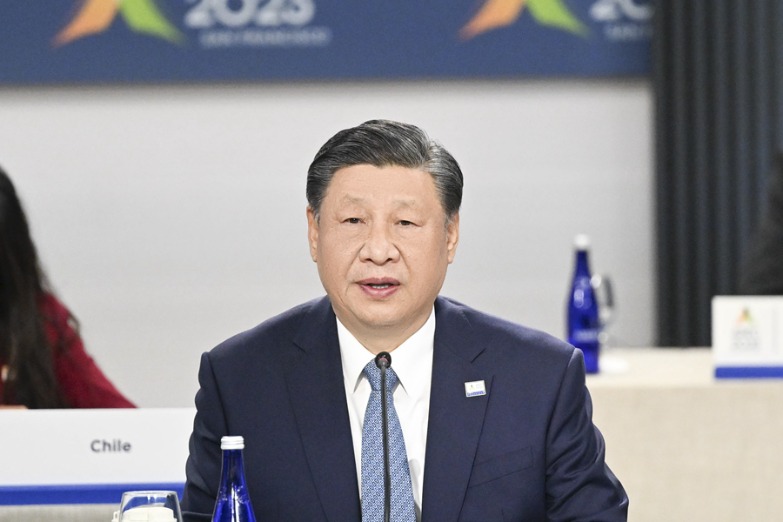
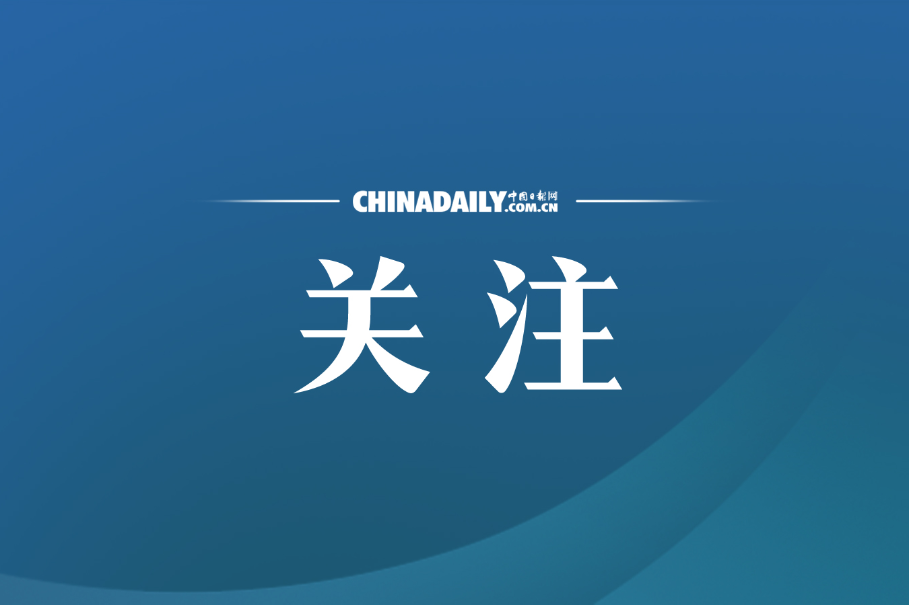
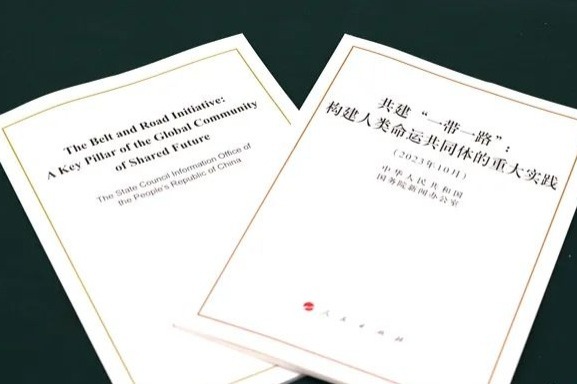
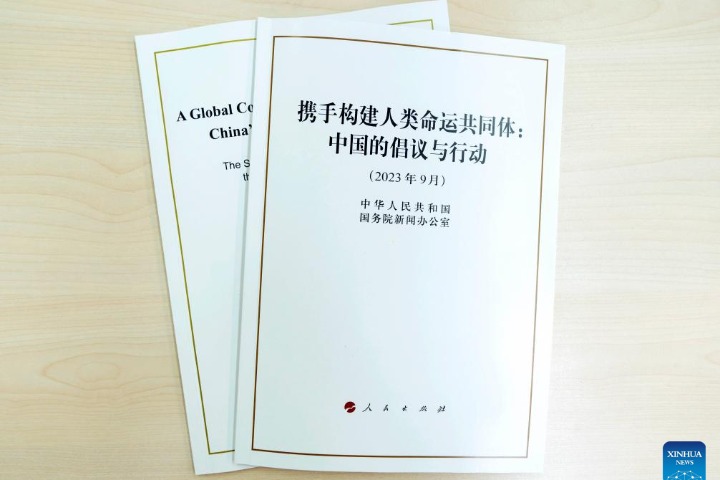
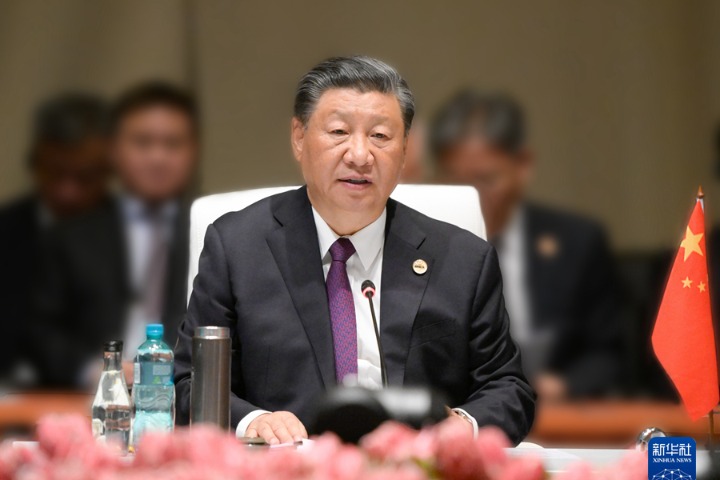



 英語點津微信
英語點津微信 雙語小程序
雙語小程序